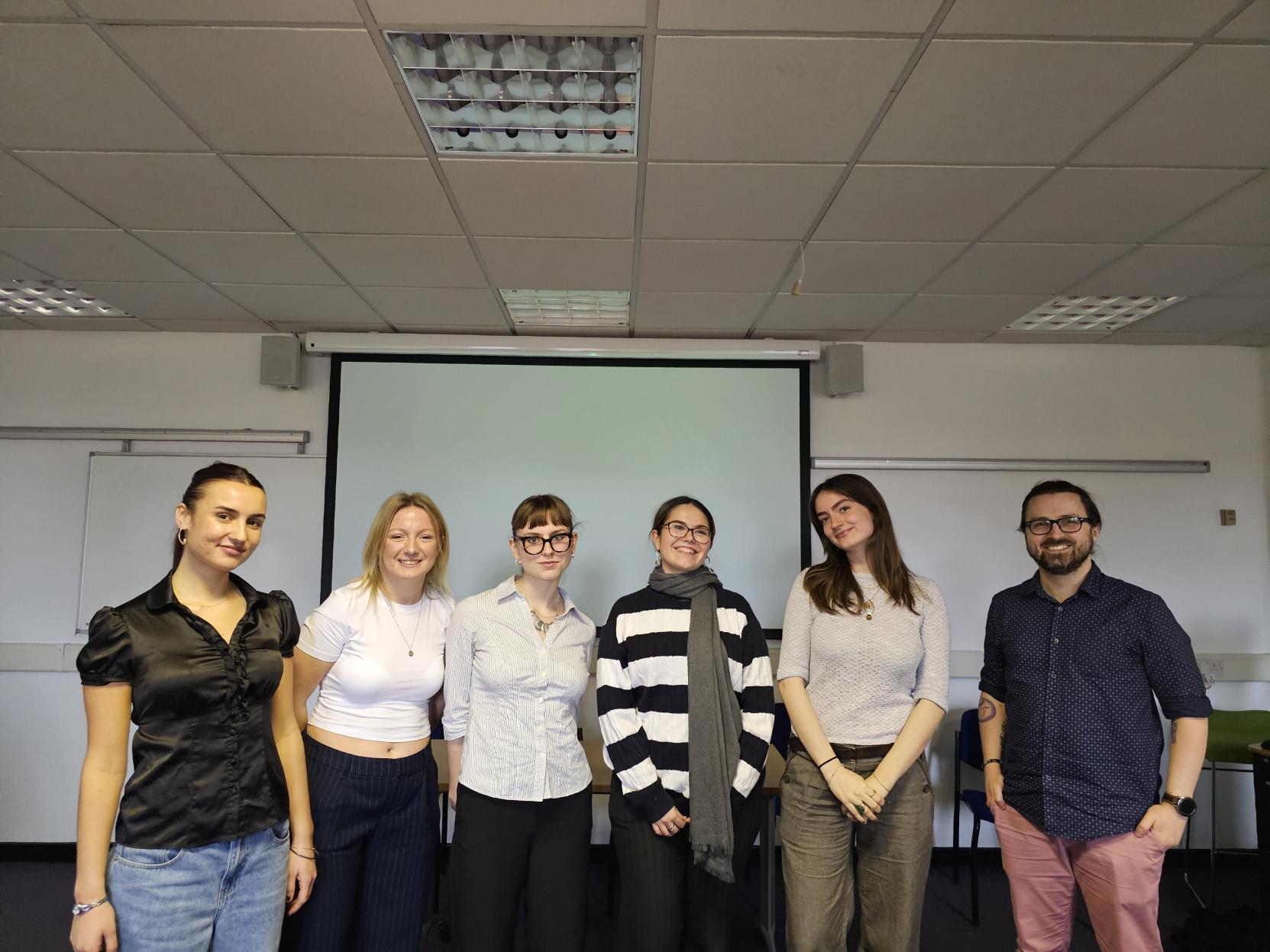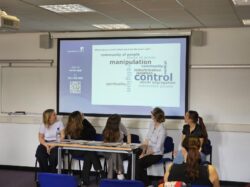Liberal Arts Students Host ‘Exploring “Cults” and “Cult” Rhetoric’ Conference

Second year Liberal Arts students at the University of Leeds, supervised by Dr Aled Thomas, recently hosted a conference and workshop on ‘cult’ rhetoric in the 21st century. The event, which brought together academics and students across disciplinary backgrounds, considered the increasing nuanced use of the term ‘cult’ in religious and political discourses. Throughout the day, the speakers and audience highlighted the central role of ‘cults’ in public conversations surrounding religion.
The day began with audience contributions on their understanding of key terminology of the day, including ‘cult’, ‘brainwashing’, ‘new religious movement’, and minority religion. The rich diversity of responses became an excellent talking point!

The conference in progress
This was followed-up by presentations from the Liberal Arts students, in which they demonstrated the findings of independent research they have conducted over the past academic year:
Ingrid Russell: The Rhetoric of ‘Brainwashing’: Examining the Othering of New Religious Movements in Contemporary Society
Maya De Luca: Crime, criminality and cults
Mackenzie Bradley: ‘Cult’ fanaticism and what this means for ‘cult’ rhetoric
Anna Wills: ‘Cult’ rhetoric within the psychology of Trump supporters
Lorna Beckett: ‘Cult’ rhetoric and colonialism
These presentations were directly informed by each students’ major subjects in Liberal Arts – providing the audience with interdisciplinary perspectives, drawing from sociology, history, English, philosophy, and politics.
Audience members then enjoyed a paper from renowned NRM scholar Dr George D. Chryssides on ‘Cult Rhetoric – Past, Present and Future’. Chryssides charted a history of ‘cult’ rhetoric, from its twentieth-century evangelical Protestant roots, to contemporary allegations of brainwashing and mind control. His paper also outlined the relationship between ‘cult’ rhetoric and media sensationalism, highlighting why ‘cultic’ discourse is likely to persist.
Chryssides’ presentation was followed by a paper from Bethan Oake, a PhD candidate at the University of Leeds. Oake discussed the current landscape of public ‘Satanic Cult Conspiracy’ discourse, its relationship with ‘cult’ rhetoric, and its future influence upon public social attitudes.
Joining the event via hybrid, Dr Susannah Crockford, discussed the ‘Cult of Trump’ and why the former President has become known as a cult leader and what this says about contemporary intersections of religion and politics. Crockford also explored how contemporary hybrid movements, such as QAnon, play a further part in the elaboration of ‘cult’ rhetoric.
To close the event, Dr Sarah Harvey and Dr Suzanne Newcombe from INFORM spoke about their work as an educational charity, both responding to public enquiries about New Religious Movements and carrying out cutting-edge research projects in collaboration with wider scholars.
The students then took part in a roundtable discussion with them, asking questions about the nature of their work; a conversation that centred on the future of ‘cult’ rhetoric in the digital age. Other issues raised included the nature of INFORM’s work and the challenges they faced balancing enquiries of ‘insiders’ of those concerned about particular groups.
This event was an output for the Liberal Arts’ students Research Placement module, and was kindly supported by the University of Leeds’ Centre for Religion and Public Life (CRPL).
By Aled Thomas
[For other posts about a Liberal Arts project relevant to CRPL, see here and here.]
